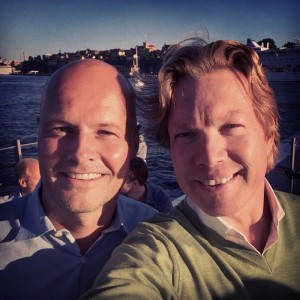
After more than 40 years of operation, DTVE is closing its doors and our website will no longer be updated daily. Thank you for all of your support.
MTGx chief: broadcasters must look to e-sports as ‘defining pillar’ of pop culture
Broadcasters must look to adapt to the specific tastes of millennials in order to survive, and in particular to the emerging phenomenon of e-sports, described by MTGx’s Arnd Benninghoff as “the defining pillar of pop culture”.
Speaking at TV Connect in London this morning, Benninghoff, CEO of Modern Times Group’s new media arm MTGx Ventures, said that younger people are leaving free TV and are not coming back so broadcasters face a major challenge in staying relevant.
He said that 75% of on-demand views are on sites other than those of TV broadcasters, such as YouTube, leading MTG last year to take a 75% stake in ESL operator Turtle Entertainment, the group’s e-sports subsidiary.
E-sports is now global and is bigger than the NFL, said Benninghoff, with its popularity driven by YouTube figures like PewDiePie. “This is digital entertainment for Millennials,” he said. “On average people watch for 2.2 hours a day. The community engagement is just so high.”
The challenge is to create a version of e-sports for free TV, said Benninghoff. “Everyone is experimenting. Turner has a league. We have experimented. We are going to create background stories, with documentaries and all this other stuff. It will be trial and error,” he said.
Benninghoff said that it was a major challenge to connect the YouTube digital influencers that are far more important to Millennials than other celebrities with advertisers. “Millennials consider influencers to be their friends,” he said. In the case of e-sports, There is the possibility of selling ‘virtual’ merchandise and tickets for events. “You have a revenue potential but it is at an early stage,” he said.
Benninghoff was less enthusiastic about more traditional broadcaster-centric digital initiatives. He said the potential to do more with catch-up viewing is “pretty lame”, adding that MTG was looking to develop dedicated short-form content and bring that content to social media.



